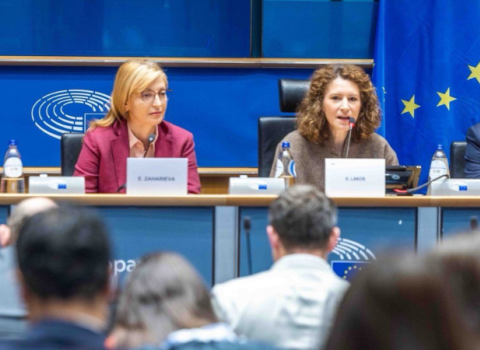Worldwide diffusion of the Internet is focusing debate around values and attitudes that are likely to vary across cultures, particularly around online freedom of expression, privacy, trust and security. These are prominent topics of discussion amongst leading Internet stakeholders, including private and public sector members, governments, policymakers and the media.
To better understand the opinions of online citizens on these issues, my research team at INSEAD conducted a study in collaboration with the World Economic Forum and the Oxford Internet Institute. Over 5,400 adult Internet users from thirteen different countries, who participated in an online survey conducted by Comscore.
Internet users want it all
Findings from this study highlight the international shift and transitions in the online environment today.
A global Internet culture is developing as values and behaviours are generally becoming more homogenous across countries, gender, age, education and income groups. Trends and patterns differ much less cross-nationally than they do within countries themselves.
When it comes to core Internet values, citizens want it all. They desire an online environment where they can express themselves freely, protect their personal data and privacy on the Internet, trust the people and information they find online - all while feeling safe at the same time. They desire the same things as they do in everyday life. For them, these values are not necessarily mutually exclusive or conflicting.
This presents a challenge to other Internet stakeholders, such as governments, policymakers, the private sector and civil society because the relationship between these four issues is complex. For example, transaction security affects Internet purchase intentions.
Yet, more online security does not automatically ensure more trust. In some cases, security mechanisms, such as national filtering systems can produce low levels of trust amongst citizens. Filtering and blocking mechanisms, put in place to protect against malware, fraud, child pornography or hate speech, can also have an impact on freedom of expression.
These practices can also infringe on online privacy if they are meant for surveillance purposes. The costs and benefits for each of these four issues ultimately have an impact on one another.
Users in emerging markets are more liberal
Our study also reveals that online citizens of emerging markets are more liberal in their attitudes and behaviours than citizens in developed regions. They are more engaged with Web 2.0 technologies and are more active web users. Signs point to emerging markets including China, Brazil, India, Mexico and South Africa outpacing developed nations such as the US, UK, Canada, Germany and France in their innovative patterns of use in the online world.
There may be a number of explanations for the unfolding trends in this study. Longer proximity and familiarity with technology and the Internet in developed nations may have diminished the novelty and hype surrounding digital media and new technology, or have exposed users to the risks that are involved over time.
Or, it may be in part due to the excitement currently created by high growth and development in emerging markets. Whatever the reasons, we need to begin to examine online phenomena, trends and patterns in a different light - especially as online citizens from emerging markets start to outnumber those from developed regions.
The renowned social psychologist and author Richard Nisbett suggests that the convergence of culture creates a shift in common social practices in society, which will ultimately lead to the transformation of typical patterns of perceptions and thoughts. The evidence from our survey is that this seems to be what is happening on the Internet now.
The report, The New Internet World: A Global Perspective on Freedom of Expression, Privacy, Trust and Security Online is available here.
Soumitra Dutta is the Roland Berger Professor of Business and Technology and Founder and Academic Director, eLab, INSEAD, and recently participated in the Science|Business Policy Bridge round table discussion "Data protection and security: How will new technologies change the policy debate?" A full report on this meeting will be available shortly.





 A unique international forum for public research organisations and companies to connect their external engagement with strategic interests around their R&D system.
A unique international forum for public research organisations and companies to connect their external engagement with strategic interests around their R&D system.